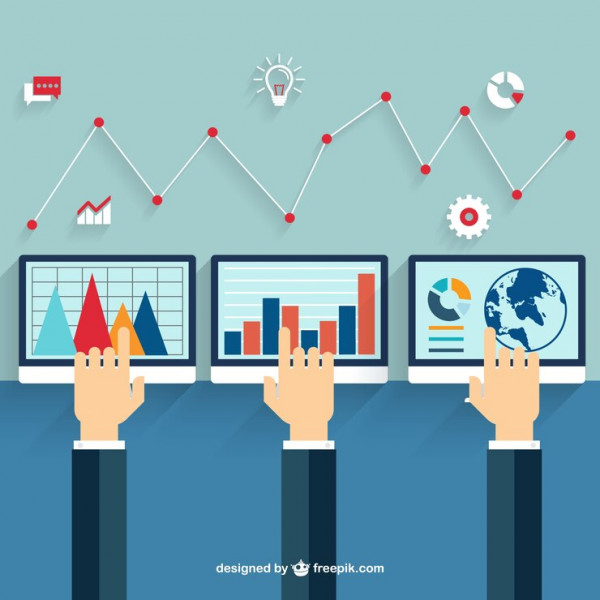Introduction
As economies shift from traditional to digital and online models, threats can easily overpower traditional methods used for data security. With the digital economy in uproar, governments and companies must be proactive in developing efficient cyber threat mitigation systems that can eliminate all kinds of cyberattacks and protect user data at any cost. Also, the digital economy’s sustainability relies heavily on the interrelationship between business value, data, and managerial decision-making.
Information technology has made it easier for countries, organizations, buyers, sellers, and markets to connect with each other, but it also means that every time we interact, we leave a digital trail behind us. Also, these interactions are stored in the form of data on some device or network for retrieval whenever needed. So, no matter how secure a company or a country feels about their data security, there are instances where cybercriminals have managed to breach even the toughest security shield and hack the data, causing irreparable damages that have caused financial dents and spoiled the company’s brand. So, let’s talk about current trends in cybersecurity and how it helps the digital economy grow at a rate that has never been seen before.
2022 Cybersecurity trends take shape in the Digital Economy
Cybersecurity Trends
Last year, we observed numerous disruptions in the realm of cybersecurity, even as the COVID-19 pandemic is coming under control. Remote work continues to be the default mode of carrying out employee tasks for many big companies, making cloud-based operations the norm. The 5G network is now connecting electronic devices at better speeds and higher bandwidths. Digital currencies like cryptocurrencies have become very popular and are now sold, bought, and traded by people on a grander scale than ever before, making the digital economy more versatile. Some of the cybersecurity industry trends expected to occur in 2022 and beyond include:
- Cybercrime has become rampant and is wreaking havoc as the number of global internet users grows exponentially each year.
- Cyber fatigue is looming large on companies that have given up on defending against cyberattacks proactively.
- Cryptocurrencies will be engulfed in heftier regulation as more and more adopt as their default transaction.
- Social media firms will work to put more thought into the ways information is shared.
- Remote working individuals will continue to be targeted by cybercriminals.
- As remote workforces become widespread, cloud breaches will also increase.
- The cybersecurity skill shortage will remain an obstacle as more jobs go unfilled without a suitable candidate.
- IoT-assisted devices will become more susceptible to cyberattacks as the 5G network increases bandwidth to connected electronic devices.
4 ways Cybersecurity acts as a shield for Digital Economy
Importance of Cybersecurity in the Digital Economy
- Offer protection against ransomware, malware, phishing & social engineering: The landscape of cyber security is constantly evolving. Cybercriminals usually throw a combination of social engineering or ransomware to attack for maximum impact. No matter how much we tighten our technology for security and alert the users, human elements will remain susceptible to surprise and unique cyberattacks. The digital economy needs to focus on developing robust firewalls. Advanced malware, VPNs, ransomware & phishing protection alongside endpoint security and supporting email are all necessary to protect user data and mitigate cyberattacks.
- Preventing access to unauthorized users: A data or security breach such as unauthorized access occurs when a cybercriminal successfully manages to gain unauthorized access to an individual or company’s system through data, networks, applications, endpoints, or devices. It happens through three phases: the hacker successfully identifies vulnerabilities, escapes network defenses, and then hacks the data. We can protect against such cyberattacks through an effective password policy, multi-factor authentication, two-factor authentication (2FA), monitoring user activity, physical security practices, and endpoint security.
- Protection for networks and data: Simply put, it is a set of rules & configurations developed to protect the confidentiality, integrity, and accessibility of computer networks and data usage for both software & hardware technologies. As the digital economy has grown, our world is also changing for the better. All companies, regardless of scale and size, associated customers, and employees, can be exposed to numerous cyber threats and must be protected with the best possible security measures available currently.
- More confidence in the product or application for both developers and users: Over the last couple of decades, companies have become more thoughtful and aware and placed efficient systems to assess business risks. Although there are issues, when a leadership group expresses confidence in their capabilities to protect their companies from possible cyber-attacks of high risk, it goes down well with developers, employees, and end users as well.
Conclusion
Cybercrime is an ongoing threat to the digital economy, and cybersecurity has to be airtight to mitigate and prevent threats in time before they cause severe damage both in terms of finance and brand reputation. By making a detailed business cybersecurity risk assessment, making changes company-wide, and boosting data protection, it’s possible to protect your business against all potential data breaches. Hence, we can say that cybersecurity is the armor that protects the digital economy, and we have to make it impenetrable somehow.



